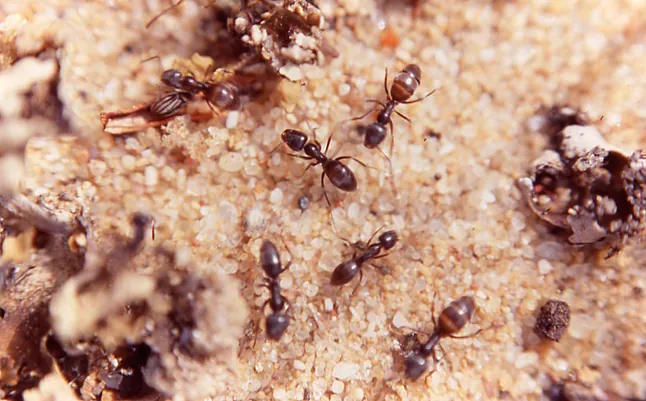Ants never cease to amaze us. It was recently discovered that they are capable of solving problems in groups more effectively than humans, and now, a team of evolutionary biologists from the University of Freiburg has demonstrated that these insects learn from experience, as reported by Europa Press. They conducted an experiment that confronted ants with competitors from another nest.
Under the leadership of Dr. Volker Nehring, an associated researcher of the Evolutionary Biology and Animal Ecology group, the researchers confirmed how the test ants remembered the negative experiences they had during these encounters.
When they encountered ants from a nest that they had previously experienced as aggressive, they behaved more aggressively towards them than towards ants from nests unknown to them. Ants that encountered members of a nest they had previously only encountered passive ants from were less aggressive. The results have been published in the journal Current Biology.
Ants use odors to distinguish between members of their own nest and those from other nests. Each nest has its own specific odor. Previous studies have already shown that ants behave aggressively, particularly towards their closest neighbors.
They are especially prone to opening their jaws and biting, or spraying acid and killing their competitors. Ants are less likely to engage in such aggressive maneuvers against nests that are further away from theirs. Until now, it was not clear why this happens. Nehring's team has now discovered that ants remember the scent of attackers. That is why they are more aggressive when facing competitors from nests they are familiar with.
Scientists conducted a two-phase experiment. In the first phase, ants acquired different experiences: one group encountered ants from their own nest, the second group encountered aggressive ants from rival nest A, and the third group encountered aggressive ants from rival nest B. In total, there were five encounters on consecutive days, each lasting one minute.
In the subsequent test phase, the researchers examined how ants from the different groups behaved when facing competitors from nest A. The ants that had already faced conspecifics from this nest in the first phase behaved significantly more aggressively than those from the other two groups.
To determine the extent to which aggression increases based on the behavior of ants from a specific nest, scientists repeated the experiment with a slight modification. In the first phase, they differentiated between encounters with aggressive and passive ants. They ensured that an ant behaved passively by cutting off its antennas. In the second phase of the experiment, ants that had only encountered passive competitors up to that point behaved significantly less aggressively.
"We often have the idea that insects function like preprogrammed robots," Nehring said in a statement. "Our study provides new evidence that, on the contrary, ants also learn from their experiences and can hold grudges." Next, Nehring and his team will investigate whether ants adapt their olfactory receptors to their experiences, and to what extent they do so, thus reflecting what they have learned at this level.
